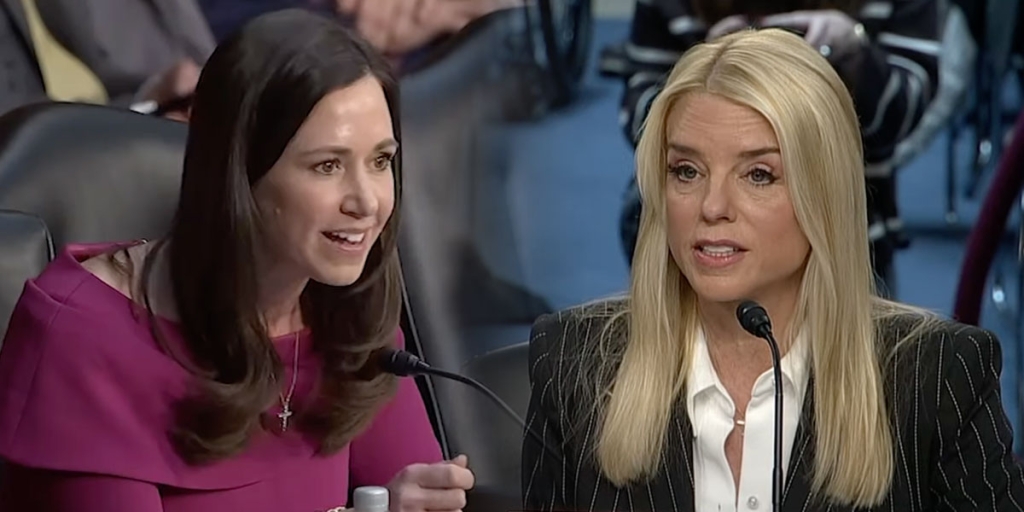Senator Katie Britt has been a vocal opponent of the Chinese Communist Party’s attempts to steal U.S. technology and intellectual property.
At a Banking, Housing, and Urban Affairs Committee hearing last week entitled “National Security Challenges: Outpacing China in Emerging Technology,” Britt discussed the issue with Jamil Jaffer, the Founder and Executive Director of the National Security Institute at George Mason University’s Antonin Scalia Law School.
“We continue to be reminded of the national and economic security implications of the Chinese Community Party and the threat that they pose both to our country and to our future,” said Senator Britt. “Time and time again, the CCP has shown that they’re not willing to play by the rules that govern international commerce. They have aided and abetted Iran evading U.S. sanctions and are actively stealing U.S. technology and intellectual property across whole sectors of our economy – from artificial intelligence, to computing, to robotics, to biology, and beyond.”
In her remarks, Britt also noted the massive increase in cases of Chinese economic espionage reported.
“In fact, the FBI’s economic espionage caseload related to China has increased approximately 1,300% over the last decade – today, on average, a China-related counterintelligence investigation is opened every 10 hours,” she said.
The Senator urged immediate action to ensure the CCP’s attempts to own American land fail.
“The stakes could not be higher. We must act now to mitigate the ongoing economic harm happening to hardworking American families, Main Street small businesses, budding entrepreneurs, and critical industries,” Britt continued. “To that point, we must stop the CCP from buying U.S. land. Not only is this impacting the availability of fertile farmland for our agriculture community, but the CCP has deliberately compromised (U.S.) national security by purchasing land near our military installations.”
RELATED: China-owned US farmland about to dry up
“That’s why I’m proud to have joined Senator Tom Cotton in introducing the Not One More Inch or Acre Act, and I continue to urge my colleagues to join us in this effort.”
Britt then asked Jaffer about the efforts being made to deter the CCP.
“We’ve allowed the NSA and our cyber command to get more aggressive and to lean forward, to defend forward in adversary networks,” explained Jaffer. “More needs to be done there.”
He also said that broader authorities are needed to allow for a more fuller government response.
“We need to take the policy decisions to actually push back against Chinese depredation and the efforts that other nation-state actors, like the Iranians and Russians, are doing on our networks as well.”
Jaffer also pointed out the importance of protecting the U.S. from economic harm and again emphasized the need for the executive branch to be given more “tools” to address the problem.
“Second, we also need to ensure that we have the policies and procedures in place that allow us to effectively push back economically against the Chinese. Today, we use tools like the SDN list, the entities list – these are not tools that are designed for the kind of economic depredation they engage in.”
“We need to be more aggressive,” said Jaffer. “It’s not just in capabilities and tools that we need to use more aggressively. We’ve gotten too used to only using economic tools that are not as effective as they could be – we need to get more aggressive on that front as well.
“We have either a sledgehammer on one side or a scalpel on the other – neither works, we need a butcher knife and that requires action by Congress to give the administration more tools, and then the administration needs to use those tools and use them effectively.”
Austen Shipley is a staff writer for Yellowhammer News.













